Understanding Life's Chemical Reactions
Major: Biochemistry | Chemistry
The interface between biology and chemistry is currently one of the most dynamic areas in pure science. Lycoming's biochemistry program provides students with the concepts, laboratory skills, and technical knowledge to engage in the many facets of this exciting and fast-paced field. Featuring coursework in biochemistry, chemistry, biology, math, and physics, the biochemistry major can be tailored to fit the academic and professional goals of each student. Hands-on experience with modern chemical instrumentation begins freshman year and continues throughout every course within the program. Extensive labs, combined with student-faculty research and a comprehensive liberal arts education, prepare students for success in a variety of careers in academic, industrial, pharmaceutical, and government lab settings, as well as health professions.
Student Opportunities
- Work closely with faculty on collaborative and independent research projects.
- Master the use of state-of-the-art chemical instrumentation and technology.
- Gain valuable teaching experience as a study group facilitator, course tutor, or a laboratory teaching assistant.
- Participate in summer research experiences or internships in the chemical laboratories of companies like Avery Dennison, US Geological Survey, and the Williamsport Municipal Water Authority.
- Present research at local and regional meetings and conferences.
- Complete field research in the Dominican Republic on the study of water and coffee quality.
- Collaborate with local schools and groups to put on demonstrations and laboratory experiences.
- Work with the local Alabaster Coffee Roaster and Tea Company to study green coffee stability.
Why Lycoming?
- A comprehensive curriculum that enriches student understanding of the complex chemical reactions among molecules in biological systems.
- Students take courses with full-time, tenured faculty who provide a depth of knowledge in biology, chemistry, biochemistry, math, and physics.
- Small class sizes allow for in-depth discussion and applied learning opportunities to advance students’ critical thinking skills.
- A modern inventory of chemical instrumentation is available for students’ use beginning their first year.
- Departmental endowed funds support year-round research programs and the acquisition of new instrumentation.
Why Lycoming is the Right Choice →
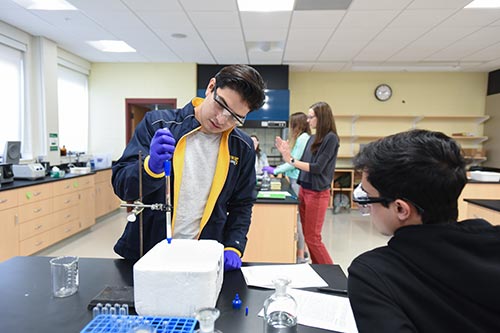
Edgar Serrano and Alex Verdin perform chromatography in biochemistry lab
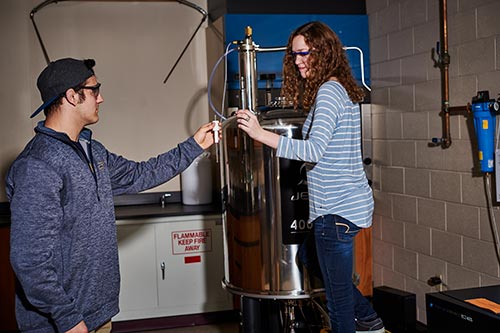
Cassandra Bendyk and Brandon Conrad load a sample into the 400 MHz NMR
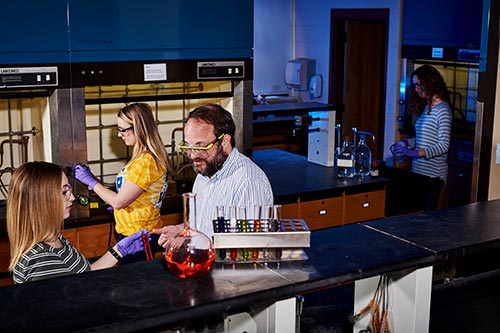
Dr. Mahler and General Chemistry students
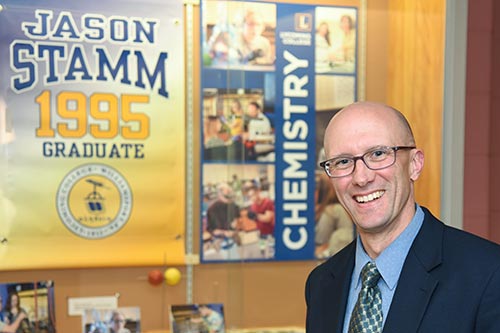
Dr. Jason Stamm at his Number Retirement Ceremony
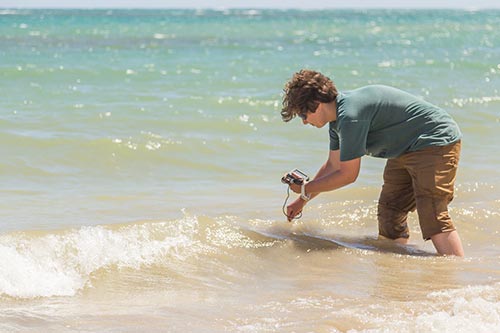
Paige Rockwell analyzing water in the Dominican Republic
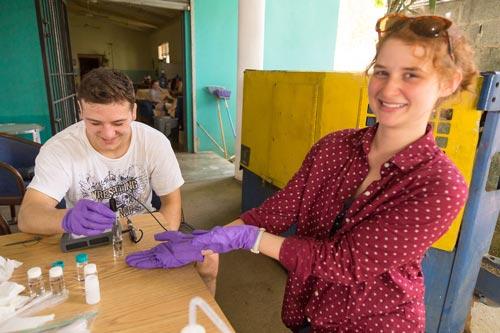
Brandon Conrad and Lizzie Ritter analyzing water in the Dominican Republic
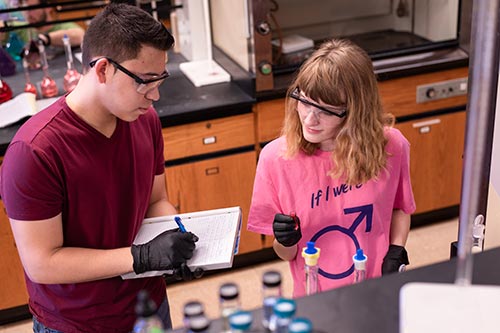
Cristhian Cosenza and Lucy Cullen in Analytical Chemistry lab
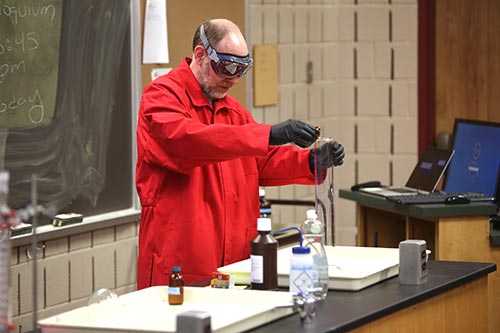
Dr. Jeremy Ramsey performing a chemical demonstration
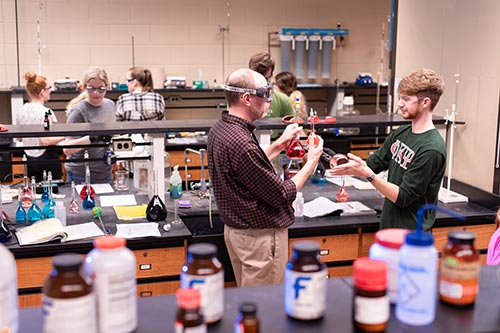
Dr. Jeremy Ramsey and students in Analytical Chemistry lab